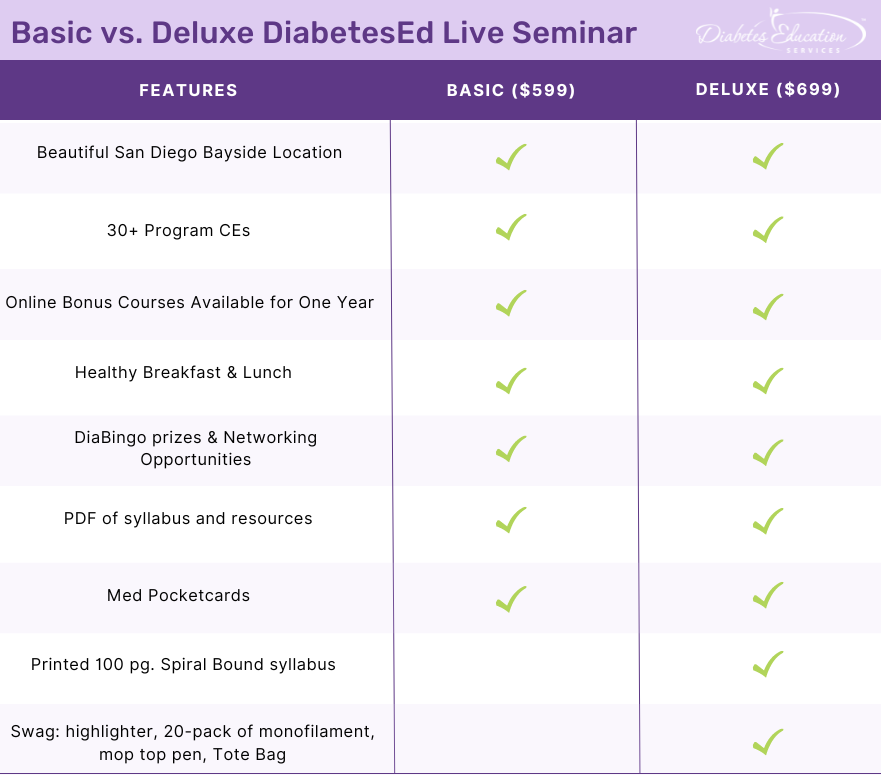
For last week’s practice question, we quizzed participants on the importance of annual kidney testing. 52% of respondents chose the best answer. We want to clarify and share this important information, so you can pass it on to people living with diabetes and your colleagues, plus prepare for exam success!
Before we start though, if you don’t want any spoilers and haven’t tried the question yet, you can answer it below: Answer Question
Question: Only about 40% of individuals with diabetes get their kidney function tested annually.
Why is the evaluation of glomerular filtration rate (GFR) and Urinary Albumin Creatinine Ratio (UACR) of critical importance for people with diabetes?
Answer Choices:
- Evaluate if peritoneal or hemodialysis is necessary for the individual.
- Determine best anti-hypertensive and glucose pharmacotherapy.
- Protect against immune mediated renal complications.
- Slow the progression of chronic kidney disease development.

Getting to the Best Answer
If you are thinking about taking the certification exam, this practice test question will set you up for success. Test writers anticipate possible answers based on the details in the question. They will wave those “juicy answers” right under your nose. Your job is to weed through the particulars, pluck out the most important elements and choose the BEST answer.
Answer 1 is incorrect. 3.43% chose this answer. “Evaluate if peritoneal or hemodialysis is necessary for the individual.” For people experiencing chronic kidney disease and worsening kidney function, they would need their GFR and UACR checked more frequently than annually along with a referral to a kidney specialist.
Answer 2 is correct. 51.56% of you chose this answer. “Determine best anti-hypertensive and glucose pharmacotherapy.” YES, this is the best answer. Knowing the GFR and UACR is critical to determining best medication therapies. For individuals with diabetes and a GFR less than 60 and/or a UACR of 30mg/g or greater, the ADA Standards recommend starting a SGLT-2 Inhibitor to preserve renal function. In addition, in individuals with hypertension and a UACR of 30mg/g or greater, the antihypertensive of choice is either an ACE or ARB. Yearly kidney function screening helps not only direct best diabetes and hypertensive medication therapy, it also identifies early kidney disease so preventive action can be taken.
Answer 3 is incorrect. About 8.48% of respondents chose this. “Protect against immune mediated renal complications.” This juicy answer is tempting and sounds good, but it is not an accurate response or a recognized condition.
Finally, Answer 4 is incorrect. 36.53% chose this answer. “Slow the progression of chronic kidney disease development.” This answer is tempting, but it does not address the intent of the question. Yearly kidney function testing informs the care providers about the health of the kidney. but simply testing does not slow kidney disease. Action is required.
We hope you appreciate this week’s rationale! Thank you so much for taking the time to answer our Question of the Week and participate in this fun learning activity!
Want to learn more about this question?
Join us LIVE in San Diego for our DiabetesEd Training Conference
October 11-13th, 2023

Two Registration Options

Join Coach Beverly and Team for two and a half days of knowledge-sharing, fun, networking, games with prizes, and “aha” moments in beautiful San Diego.
You don’t want to miss this one-of-a-kind learning opportunity. Get away from all those daily responsibilities and immerse yourself in a fun and intensive conference with plenty of networking opportunities.
Attendees will leave this conference with new tools and a more complete understanding of the latest advances in diabetes care, from medications to technology to Medical Nutrition Therapy!
Bring your colleagues and enjoy our friend discount.
Our team expertly translates the complex science of diabetes into understandable terms while keeping it real, practical, and fun.
Team of expert faculty includes:
- Diana Isaacs, PharmD, BCPS, BC-ADM, BCACP, CDCES – Educator of the Year, 2020
- Coach Beverly Thomassian, RN, MPH, CDCES, BC-ADM
- Ashley LaBrier, MS, RD, CDCES, Diabetes Program Coordinator
All hours earned count toward your CDCES Accreditation Information
Sign up for Diabetes Blog Bytes – we post one daily Blog Byte from Monday to Friday. And of course, Tuesday is our Question of the Week. It’s Informative and FREE! Sign up below!
The use of DES products does not guarantee the successful passage of the CDCES exam. CBDCE does not endorse any preparatory or review materials for the CDCES exam, except for those published by CBDCE.









